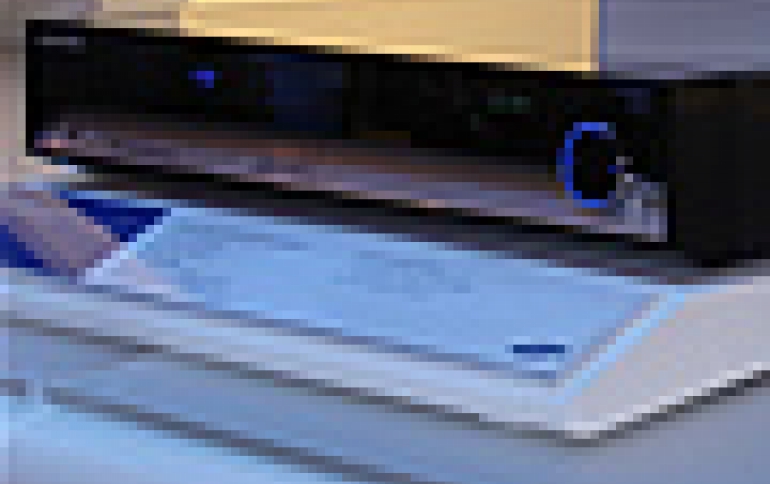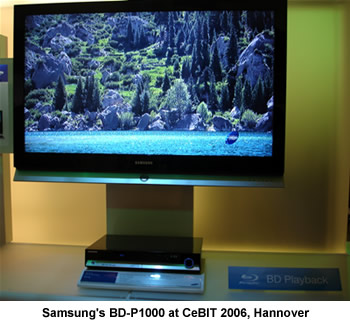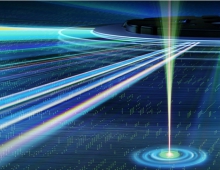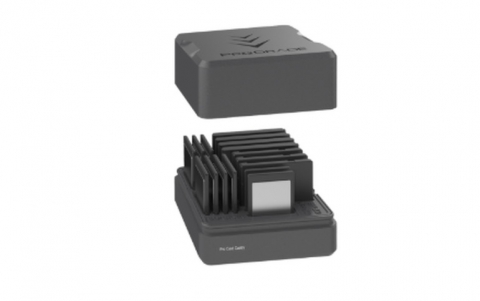
Samsung Delays US Blu-ray Player Launch to June
Samsung Electronics said on Tuesday it has delayed the U.S. launch of its next-generation DVD player for a month, to late June, in order to complete testing.
Toshiba last week started rolling out its HD DVD format players in Japan, becoming the first company to offer next-generation optical disc players worldwide.
Samsung is rescheduling the launch of its Blu-ray standard disc player in the United States to June 25 from May 23, the company said in a statement distributed by a public relations agency.
"We still anticipate that the Samsung BD-P1000 will be the first Blu-Ray player to launch at a national level in the United Sates," Samsung said in a statement. Japan's Sony plans to offer Blu-ray players in the United States in July.
Samsung's BD-P1000 model is expected to be sold at a $999 street price and include a memory card interface, which enables users to enjoy digital still pictures on a high-definition television.

The player is also expected to provide native 1080p (progressive) output via the HDMI interface, for discs mastered in 1920 x 1080 resolution. Toshiba's first generation of HD DVD players are capable of 1080i (interlaced) output. In addition, the BD-P1000 will upconvert the resolution of standard DVDs to 1080p.
Finally, Samsung is adding, of all things, a memory card reader for Mini-SD and Memory Stick Pro Duo, enabling high-definition photographs to be projected through the player, onto the high-def display. Memory card readers had been expected to be a feature of new high-def displays themselves. Samsung continues to report an "expected street price" of $999, which means the MSRP will probably be somewhat higher.
Samsung may be one of the first manufacturers, after Sony, with a Blu-ray player available on the "street," with Pioneer's models expected in July, and Panasonic's recently slated for September.
Toshiba plans to offer two HD DVD models in the United States from April, for $799 and $499, respectively.
Big consumer electronics firms such as Samsung, Sony, Philips , Dell and Matsushita Electric Industrial Co. are in the Blu-ray camp.
HD DVD is a format supported by Toshiba and NEC , while Hewlett-Packard and LG Electronics Inc. are to support both standards.
Samsung is rescheduling the launch of its Blu-ray standard disc player in the United States to June 25 from May 23, the company said in a statement distributed by a public relations agency.
"We still anticipate that the Samsung BD-P1000 will be the first Blu-Ray player to launch at a national level in the United Sates," Samsung said in a statement. Japan's Sony plans to offer Blu-ray players in the United States in July.
Samsung's BD-P1000 model is expected to be sold at a $999 street price and include a memory card interface, which enables users to enjoy digital still pictures on a high-definition television.

The player is also expected to provide native 1080p (progressive) output via the HDMI interface, for discs mastered in 1920 x 1080 resolution. Toshiba's first generation of HD DVD players are capable of 1080i (interlaced) output. In addition, the BD-P1000 will upconvert the resolution of standard DVDs to 1080p.
Finally, Samsung is adding, of all things, a memory card reader for Mini-SD and Memory Stick Pro Duo, enabling high-definition photographs to be projected through the player, onto the high-def display. Memory card readers had been expected to be a feature of new high-def displays themselves. Samsung continues to report an "expected street price" of $999, which means the MSRP will probably be somewhat higher.
Samsung may be one of the first manufacturers, after Sony, with a Blu-ray player available on the "street," with Pioneer's models expected in July, and Panasonic's recently slated for September.
Toshiba plans to offer two HD DVD models in the United States from April, for $799 and $499, respectively.
Big consumer electronics firms such as Samsung, Sony, Philips , Dell and Matsushita Electric Industrial Co. are in the Blu-ray camp.
HD DVD is a format supported by Toshiba and NEC , while Hewlett-Packard and LG Electronics Inc. are to support both standards.





















